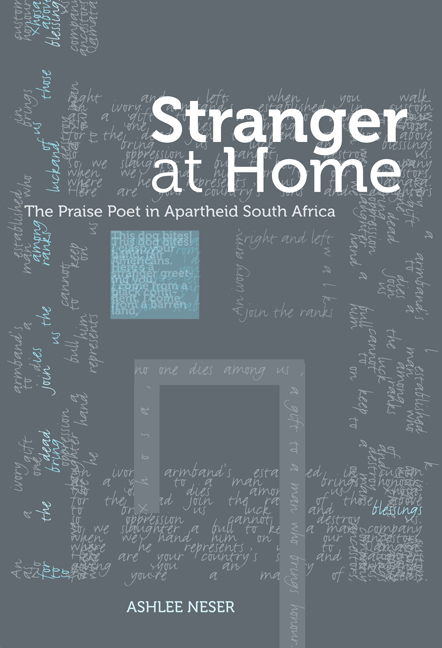one - Writing in a vacuum
from part one
Published online by Cambridge University Press: 17 May 2019
Summary
Manisi's public career began auspiciously in 1946 when he was invited to perform at one of the many celebrations organised to mark Ntsikana Day, an annual celebration of great significance to the Xhosa community of the eastern Cape. Such was the power of Manisi's contribution to the occasion that in 1947 he was asked by the Ntsikana Day Committee to produce poetry at the main national event in East London. What remains of Manisi's national debut is a sentence in an article published on 19 April 1947 in the Johannesburg newspaper Umteteli wa Bantu (‘The People's Spokesman’). Reporting on the main celebrations for dispersed Xhosa audiences, the article recounts the day's proceedings in some detail and recalls that ‘[a]s we were closing Mr Livingstone Manesi (a poet) spoke about the celebration and he reminded us of Mqhayi’ (in Opland 2005: 47). Until his death in 1945, SEK Mqhayi had held the distinguished position of official Ntsikana Day poet, an honour bestowed upon Manisi in 1947 by his audiences and by published reports like that quoted above.
The young poet's early rise to prominence in the local popular imagination resulted in large measure from people's experience and discussion of his talent. Yet his reputation was created in print as well as in performance contexts, with the result that he was known as Mqhayi's successor beyond the confines of the local. After the 1947 Umteteli article, several newspaper reports of local events at which Manisi had performed augmented and circulated the poet's literary reputation in Transkei, Johannesburg and beyond. A favourable review of his talent also featured in the published poetry of a notable contemporary, the writer St John Page Yako. In a poem commemorating the 1951 unveiling of Mqhayi's tombstone, a public occasion attended by dignitaries and poets, Yako refers to the brilliance of Manisi's performance at the event and berates Xhosa intellectuals, like AC Jordan, for their absence and for having lost an opportunity to hear Manisi, the nation's newest talent:
Even Jordan of ‘The Wrath of the Ancestors’ has seen nothing
Since he has not seen the edge of Manisi's hair,
As he gestured and acted up as if to stab the heavens.
Even Mdlele hid himself at Lovedale
Fearing for his egg-head
Lest Manisi's dust should fall on and soil it. (in Kuse 1983: 143)
- Type
- Chapter
- Information
- Stranger at HomeThe Praise Poet in Apartheid South Africa, pp. 35 - 65Publisher: Wits University PressPrint publication year: 2011



